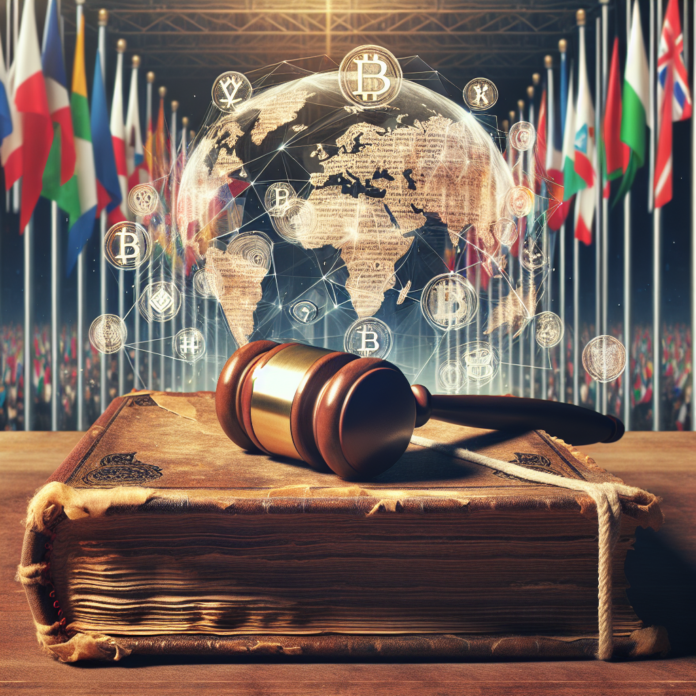The revolutionary rise of cryptocurrency across the globe has not just disrupted the financial sector; it has ushered in a complex new era of international regulation. As digital assets grow in popularity, governments and regulatory bodies are racing to establish legal frameworks that manage their use, prevent fraud, and protect consumers. This article delves into the intricate web of international cryptocurrency regulations, offering insights into how different jurisdictions are approaching the digital currency boom.
The United States: A Patchwork of State and Federal Regulation
In the United States, the regulation of cryptocurrencies is an evolving patchwork of state and federal laws. Federal agencies like the Securities and Exchange Commission (SEC) are focused on securities laws, treating some cryptocurrencies akin to stocks, while the Commodity Futures Trading Commission (CFTC) regards them as commodities. The Financial Crimes Enforcement Network (FinCEN), on the other hand, is concerned with the adherence to the Bank Secrecy Act and anti-money laundering (AML) laws. Keeping abreast of the latest guidance from these federal agencies is crucial, as regulations can directly impact the operation of crypto businesses.
The European Union: A Move Towards Harmonization
The European Union (EU) is working towards harmonizing regulations across its member states. The Fifth Anti-Money Laundering Directive (5AMLD) came into effect to tighten controls on cryptocurrencies and the platforms that facilitate their exchange. Recently, the EU proposed the Markets in Crypto-Assets Regulation (MiCA), aiming for a comprehensive set of rules that would offer legal clarity and enhance investor protections throughout the EU.
Asia: Diverse Approaches with Common Goals
Asia’s approach to cryptocurrency regulation is as diverse as the continent itself. Japan has established itself as a crypto-friendly jurisdiction with clear regulations in place, where the Financial Services Agency (FSA) oversees the sector. In contrast, China has taken a stern approach, cracking down on cryptocurrency trading and mining activities. However, the broader aim remains the same across the board: to prevent financial crimes while fostering innovation.
- Japan FSA on Cryptocurrencies: fsa.go.jp
Global Standards: The Role of the FATF
The Financial Action Task Force (FATF) has a significant influence on the global regulation of cryptocurrencies. The FATF has laid down recommendations that encourage countries to adopt regulatory and supervisory standards for combating money laundering and terrorist financing related to digital assets.
- FATF on Virtual Assets: FATF-GAFI.org
The Future of Cryptocurrency Regulation
As digital currencies continue to permeate global markets, we can expect a future where international regulations gradually align to reflect the borderless nature of these assets. Innovators, investors, and users in the crypto space must remain vigilant and adaptable as the international community works towards a coherent legal framework that balances the promise of cryptocurrencies with the need for legitimate oversight.
In conclusion, the legal landscape for cryptocurrencies remains as dynamic as the currencies themselves. By understanding these international regulations, crypto businesses and enthusiasts can navigate the complexities of compliance, contribute positively to the shaping of these laws, and ultimately support the healthy evolution of the digital asset space.




 AGF-B.CO
AGF-B.CO